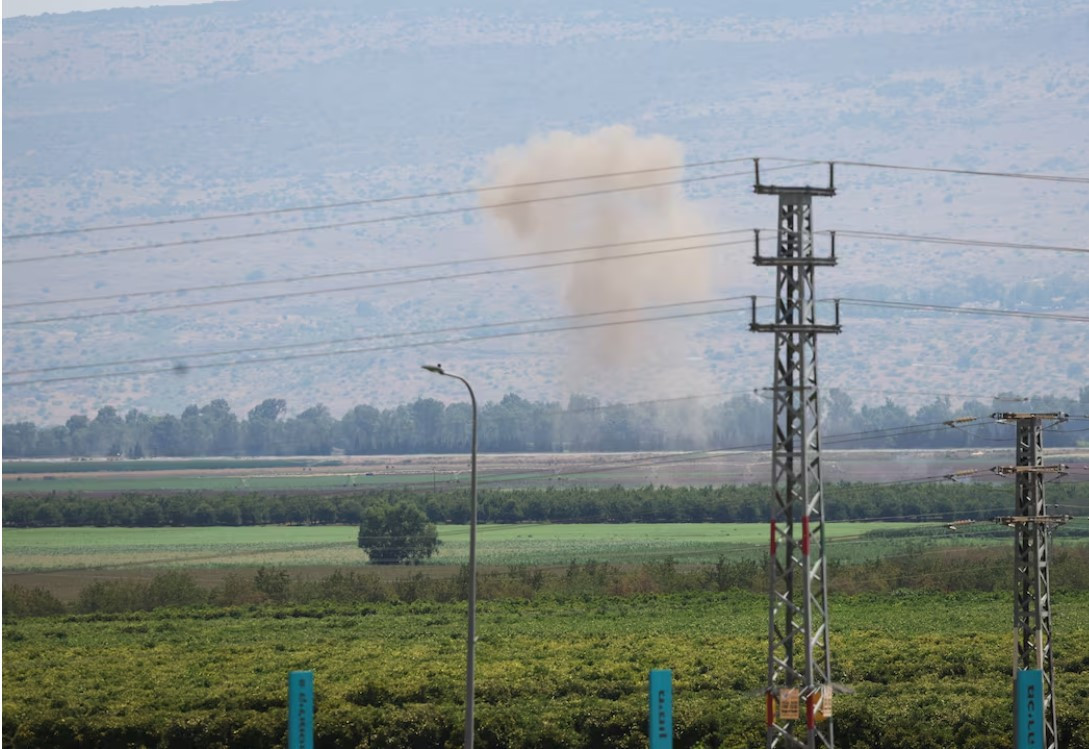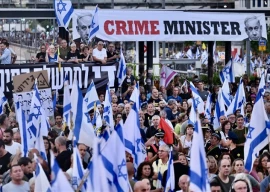
Israeli Prime Minister Benjamin Netanyahu will convene his security cabinet on Thursday evening to discuss new Hamas positions on a ceasefire deal in Gaza, a source in Netanyahu's office said, as fighting in the enclave raged.
Before the cabinet meets, Netanyahu will have consultations with his ceasefire negotiations team, the source also said.
Israel received Hamas' response on Wednesday to a proposal made public at the end of May by U.S. President Joe Biden that would include the release of about 120 hostages held in Gaza and a ceasefire in the Palestinian enclave.
A Palestinian official close to the mediation effort told Reuters that Hamas, the militant group that controls Gaza, has shown flexibility over some clauses, that would allow a framework agreement to be reached should Israel approve.
Two Hamas officials did not immediately respond to requests for comment. Hamas has said any deal must end the nearly nine-month war and bring a full Israeli withdrawal from Gaza. Israel maintains it will accept only temporary pauses in the fighting until Hamas is eradicated.
The plan entails the gradual release of Israeli hostages still being held in Gaza and the pullback of Israeli forces over the first two phases, as well as the freeing of Palestinian prisoners. The third phase involves the reconstruction of the war-shattered territory and the return of the remains of deceased hostages.
Palestinians Cautiously Hopeful
In Gaza, Palestinians reacted cautiously. "We hope that this is the end of the war, we are exhausted and we can't stand more setbacks and disappointments," said Youssef, a father of two, now displaced in Khan Younis, in the south of the enclave.
"Every more hour into this war, more people die, and more houses get destroyed, so enough is enough. I say this to my leaders, to Israel and the world," he told Reuters via a chat app.
Tanks shelled several areas on the eastern side of Khan Younis on Thursday after the Israeli army issued evacuation orders on Tuesday, but there has been no movement by the tanks into those areas, residents said.
On Thursday, many Palestinians were still seeking shelter following the evacuation order, which also included the border city of Rafah and which the United Nations said was the largest such edict since 1.1 million people were told to leave the north of the enclave in October.
Khan Younis residents said many families slept on the road because they could not find tents.
Israeli planes and tanks bombed several areas in the northern Gaza areas of Shejaia, Sabra, Daraj, and Tuffah, killing several Palestinians, including children, and wounding others, health officials said.
The Israeli military said that its troops and aircraft killed dozens of militants in those areas and in Rafah, in southern Gaza, which Israel has described as Hamas' last stronghold.
The war in Gaza began when Hamas gunmen burst into southern Israel on Oct. 7, killed 1,200 people and took around 250 hostages back into Gaza, according to Israeli tallies.
The offensive launched by Israel in retaliation has killed nearly 38,000 people, according to the Gaza health ministry, and has left the heavily built-up coastal enclave in ruins.

1730959638-0/trump-(19)1730959638-0-165x106.webp)





1727523993-0/Copy-of-Untitled-(7)1727523993-0-270x192.webp)













COMMENTS
Comments are moderated and generally will be posted if they are on-topic and not abusive.
For more information, please see our Comments FAQ